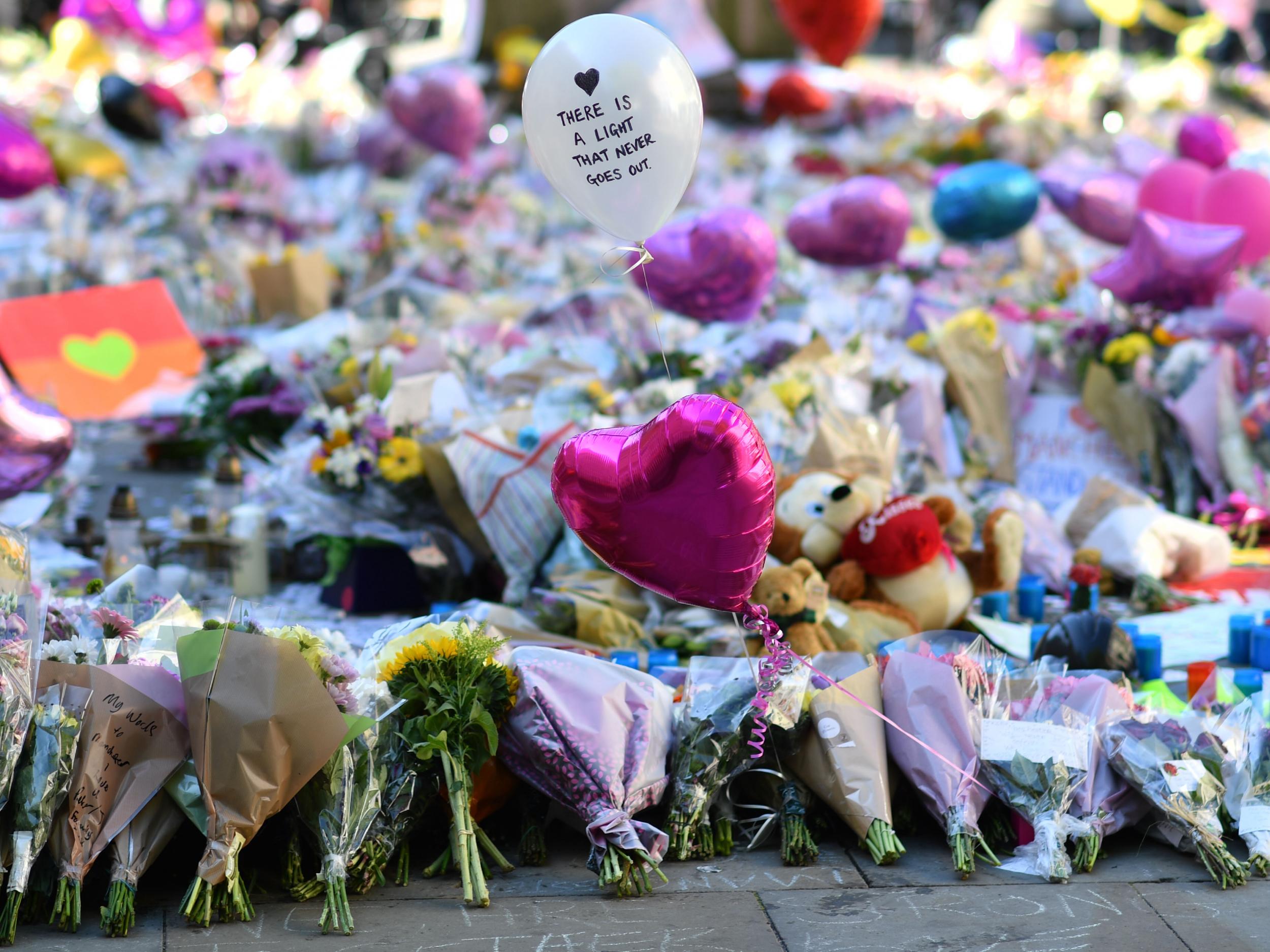Manchester bombing survivors lose legal bid to be made ‘core participants’ in public inquiry
High Court refuses permission for judicial review of decision by inquiry chair

Your support helps us to tell the story
From reproductive rights to climate change to Big Tech, The Independent is on the ground when the story is developing. Whether it's investigating the financials of Elon Musk's pro-Trump PAC or producing our latest documentary, 'The A Word', which shines a light on the American women fighting for reproductive rights, we know how important it is to parse out the facts from the messaging.
At such a critical moment in US history, we need reporters on the ground. Your donation allows us to keep sending journalists to speak to both sides of the story.
The Independent is trusted by Americans across the entire political spectrum. And unlike many other quality news outlets, we choose not to lock Americans out of our reporting and analysis with paywalls. We believe quality journalism should be available to everyone, paid for by those who can afford it.
Your support makes all the difference.Victims of the Manchester attack have lost a legal bid to be granted a formal role in a public inquiry into the bombing.
Lawyers for more than 50 people injured in the May 2017 explosion argued that they should be given “core participant” status, like relatives of those killed, Greater Manchester Police, emergency services and commercial bodies linked to Manchester Arena.
They applied for a judicial review of the refusal by Sir John Saunders, chair of the delayed public inquiry that will consider potential failings before and after Salman Abedi’s suicide bombing.
If successful, it would have allowed them to obtain documents in advance, challenge evidence and participate in lines of inquiry.
At the High Court on Thursday, they were told that the application had failed because it was made too late.
Dame Victoria Sharp, president of the Queen's Bench Division, said: “We have decided that the application is out of time and we decline to extend time.
"We would in any event have refused permission to apply on the ground that the claim itself is not arguable."
Sitting with Mr Justice Garnham, she said the reasons for their judgment would be handed down at a later date.
The court heard that the survivors’ application was made several weeks after the 14-day cut-off following Sir John's decision on 21 April, and had diverted "very considerable" resources ahead of the inquiry starting on 7 September.
At a previous hearing, Dame Victoria said they could only consider the lawfulness of Sir John's decision, rather than its merits.
Making his ruling in April, Sir John said it "does not mean that the survivors will not have a voice in this inquiry" as he said their evidence would be "important" and he would aim to ensure any questions are answered.
But a lawyer representing the survivors said it was "fanciful" to expect survivors to watch more than 300 witnesses on video-link, over at least six months, and respond to complex evidence without legal assistance.
Brenda Campbell QC told the court that survivors were not treated with any importance until they "put their hands up" to ask for core participant status.
"In fact they have not even been contacted, their accounts have not been taken, they have not been interviewed and, we infer from that, in addition experts have been briefed with limited reference to the survivors' experiences,” she added.
“With the greatest respect, telling someone that they are important witnesses does not make it so in practice.
”The reality is that they are treated at the very best as very important spectators.“
The mother of a teenager - who was 14 at the time of the blast and was not expected to survive her injuries at the time - said in a witness statement they believed they had been ”forgotten and ignored“, the court heard.
Paul Greaney QC, counsel to the inquiry, said the inquiry would be ”full, thorough, effective and wide-ranging“ and compliant with the Human Rights Act without making the claimants core participants.
"The questions that they would wish to be asked of witnesses will be asked either by counsel to the inquiry or by counsel for the bereaved families,” he added.
"So this is not a situation where there will be no effective participation without the involvement of the claimants."
He said many survivors had already provided accounts and further statements to the inquiry were being provided.
Many would give evidence and they were being encouraged to raise any issues with the inquiry team which may suggest lines of inquiry to pursue or lines of questioning to follow, he added.
The court heard that the initial application from the survivors was opposed by some families of those killed, and Mr Greaney who said that including survivors as core participants could possibly prolong the hearings and the scope of the inquiry.
He argued that a flood of similar applications from other survivors could "overwhelm“ the inquiry if the claim succeeded.
A total of 600 adults and 340 children were injured in the blast, the court heard, while 22 victims were killed.
Isis claimed responsibility for the bombing, which was carried out by 22-year-old Salman Abedi as young Ariana Grande fans flooded out of a concert on 22 May 2017.
His brother, Hashem, was convicted of murder and attempted murder in March over his support for the plot and is yet to be sentenced.
Additional reporting by Press Association
Join our commenting forum
Join thought-provoking conversations, follow other Independent readers and see their replies
0Comments